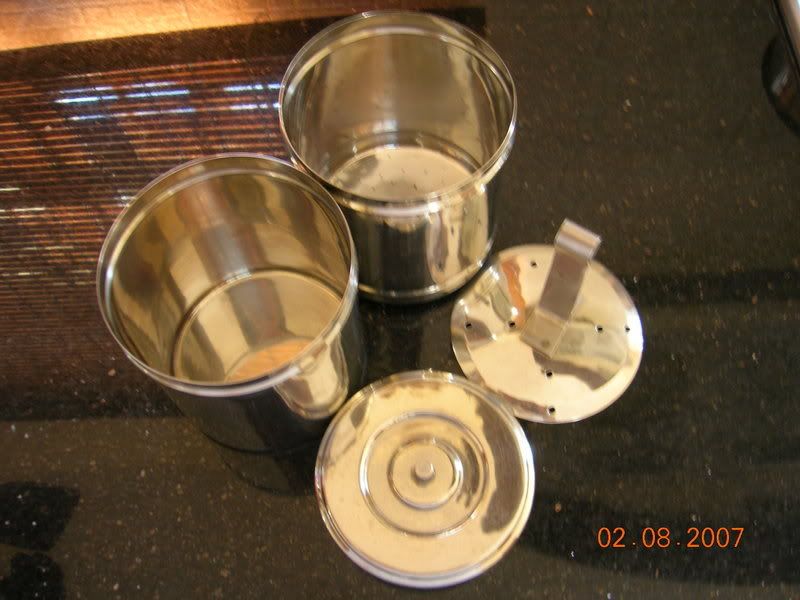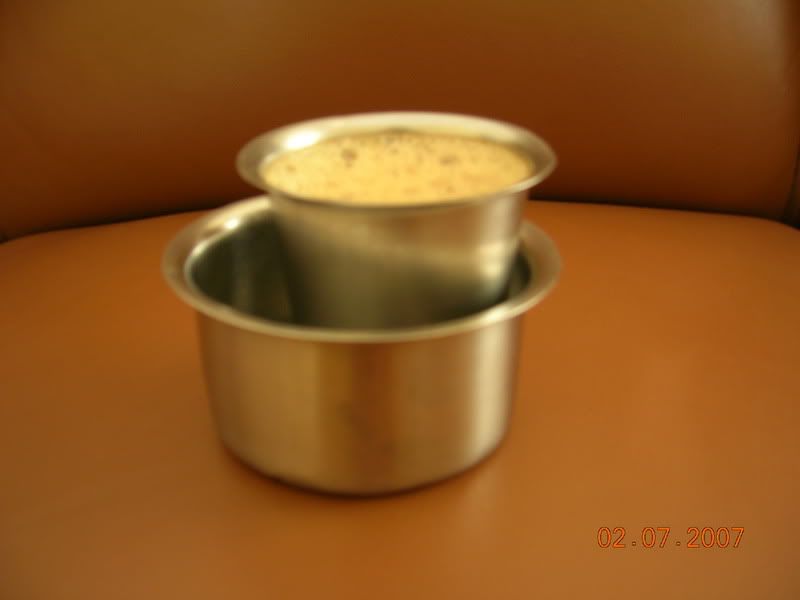Post-partum blues sounds like an innocuous condition, but it's not.
According to WebMD, it affects half to three-quarters of new mothers of which one tenth "will develop a more severe and longer-lasting depression after delivery."
For most new mothers, post-partum blues needs no introduction - the feeling of helplessness that washes over you when the baby cries because you're just not sure what the baby wants; the sheer exhaustion that comes from lack of sleep and feeding, checking diapers, giving gas medicine, burping, holding, rocking, soothing and repeating the cycle again in an endless loop through days and nights; the shiver that runs down your back at the thought of your sore, burning, red, cracked nipples and the absolute physical pain that the first few weeks of breast feeding is; the days, weeks and months it takes to get used to feeling at home in a strange new body, to get used to the overwhelming fact that you've now irreversibly given over your body and your mind to the care and well-being of a tiny human being day in and day out.
Post-partum depression came into wider consciousness after that infamous Matt Lauer
interview with Tom Cruise in which the latter criticized Brooke Shields for turning to medicine to deal with her
struggle with a debilitating form of the condition following the birth of her first child.
From experience, I can tell you, thankfully, that the depression seemed to last only a few days and only with my first child. Back when my son was born, I just got up each morning and had a good bawl for ten minutes and then the rest of the day seemed to go better. Once I figured out what his cries meant and I knew how to respond to him, how to hold him after a feed so that his stomach did not feel uncomfortable any more and even get a giggle or two out of him, the feeling of sadness and helplessness was a thing of the past.
As the days wore on, I realized that there were so many things about being a new mom that no one had talked to me about. Perhaps one reason was that I was the first one among my peers to have a baby and it had been so long since my mom and aunts had babies that all they remembered were the rosy bits about being new mothers (yes, that happens - or else you think there would ever be second borns?).
So after my first child was born, if friends asked me, I told them that it was ok if, contrary to movie depictions, they did not fall in love with the tiny stranger in their arms two minutes after going through that brain-rattling experience called labor; that it was ok to ask for epidural; it was ok not to take epidural; it was ok to have natural childbirth; it was ok to have a C-section; that all we can do is to prepare ourselves for the kind of birth we want, but in the end to go with the flow; that it was ok if they felt inadequate and did not know how to take care of their own babies - that it did not make them bad mothers; that breast feeding would hurt like nothing they had ever known and it would for days; that engorgement is a good thing but that hurts too; that breast feeding is not as easy as some people make it out to be those first few days; that it's ok if the baby and you take more than a few tries to get it right; that eventually both you and the baby will figure it out; that if all else fails and you want to give up and bottle-feed your baby, it doesn't make you a bad mother; that a dip in milk supply can quickly be brought back up to necessary levels (lots of
methi [fenugreek] and water); that it's ok to want a break and to want not to feel like a cow sometimes (although if you pump your milk there's no escaping it); that it's ok to sit down and have a good cry once in a while.
And I told my friends all of this and more even if they did not ask me.
The second time around when my daughter was born, I knew what to expect of course and I listened to my own advice. There is such a vast difference in attitude between the first time and the second time. Perhaps because now you know that there are larger issues looming in the horizon (such as making and keeping friendships, talking about poverty and hunger, about saving money, about family, religion, war, cricket, home) you tend to take certain things, which the first time around seemed to be insurmountable problems, in your stride. I'm just not as anal as I used to be.
During the first six months after my son was born, I documented every feed (time, which breast, how long), every change of diaper (time, color and consistency), every ounce of medicine that went in his body, every visit to the doctor, every illness and the doctor's advice. And I worried if he did not feed for the allotted time every time (although he was feeding every two hours on the dot day and night and did not fuss about feeding at all). With my daughter, from the time we came home, she fed only once in four hours and I could not tell you for how long she fed and from which breast because I haven't written it down anywhere. I could just tell from looking at her that she was well fed and happy. She slept through the night and I let her, though with my son I would be hovering nervously over his crib if he did not wake up by the end of the second hour.
This time around, my post partum blues (if you can even call it that) were definitely of a minor scale. My son, who had been told from day we found out I was pregnant to stay away from my tummy (although we hadn't told him why straight away - another post coming up) and was therefore looking forward to the day he could hold me in a crushing hug, was dismayed when he saw my stomach after my daughter was born and it was still huge. He asked if there was another baby inside. My brother, who was expecting his own baby in a few weeks and was therefore watching every item of post partum protocol with eagle eyes, asked the same thing and with about the same tact as my son. The lady that helps me with the chores in the house, B, kept mum for two days after which she said I had to do something about my stomach.
As for me, I was blissfully unaware of how my stomach looked and even when I looked in the mirror, I thought I looked great for a mother of two kids who had gained a total of 61 pounds during the two pregnancies.
And then one day it hit me.
I came down the steps from my room into the dining room down stairs and made a quick turn to the left, almost ninety degrees, to go into the kitchen. The turn was too quick apparently because I suffered what felt distinctly like whip lash around my waist. The loose, distended part of my stomach, aka, the largest part of my body then, swung to the left on its own and tugged at my back muscles. Whoa!
So I ransacked the sarees and
dhotis (
veshtis,
panchés) that my parents had brought with them, selected the softest ones, and my mom and B twisted them into ropes, laid me flat on the bed, and drew the cloth around me in coils and with one on either side of me, they pulled and pulled.
If you've read Margaret Mitchell's description of how Mammy ties the corset around Scarlett, you'll know exactly what I mean.
I would be breathless for a few minutes and light headed, but eventually got used to that thing around my waist and found that it actually helped with my back ache. Then I moved on to those elastic things you get at medical stores and went from the largest to the smallest size. My stomach is still a far cry from the washboard stomachs of advertisements for exercise equipment, but my back is much better.
Nine months on from the birth of my daughter, post partum is a thing of the past, and other issues have taken over my grey cells - such as how not to forget that my six year old, no matter how mature and no matter how many friends he's shushed up saying, "My baby is sleeping. You must be quiet!" is still a baby himself.





